- 微信公眾號(hào)

政策解讀
- 微信小程序

快速擇校

政策解讀

快速擇校
The China boom is by now a well-documented phenomenon. Who hasn't heard of the Middle Kingdom's startling economic growth (8 percent annually), its enormous consumer market (1.2 billion people), the investment ardor of foreign suitors ($40 billion in foreign direct investment last year alone)? China is an economic marvel. According to Nicholas Lardy of the Brookings Institution, a Washington D.C.-based think tank, "No country has expanded its foreign trade as fast as China over the last 20 years. Japan doubled its foreign trade over a 20-year period; China's foreign trade as quintupled. They've become the main producer of labor-intensive manufacturing goods in the world."
But there's been something missing from the dazzling China growth story—namely, the Chinese multinational. No major Chinese companies have yet established themselves, or their brands, on the global stage. But as Haier shows, that is starting to change. After 100 years of poverty and chaos, of being overshadowed by foreign countries and multinationals, Chinese industrial companies are starting to make a mark on the world. (170 words)
1. What is the main idea of the first paragraph?
A. the startling Middle Kingdom
B. China’s economic growth
C. China’s economic marvel
D. the increase of China's foreign trade
2. What does “suitor” in the first paragraph mean?
A. A man who is courting a woman.
B. A person who makes a petition or request.
C. A person who sues in court.
D. A person or group seeking to purchase.
3. What does Nicholas Lardy’s remark mean?
A. China has succeeded economically over the last 20 years.
B. China did better than Japan in economy.
C. China’s foreign trade developed the fastest in the world.
D. China is the main producer of in the world.
4. By the phrase “something missing”, the author refer to
A. the less dazzling achievements
B. the Chinese multinational
C. lack of world famous brand
D. Haier company
5. Why is Haier cited in the 2nd paragraph?
A. To show it is starting to change.
B. To show an example of a large company.
C. To show a Chinese company of world fame.
D. To show a change in Chinese industrial companies.
參考答案:CDCCC
特別聲明:①凡本網(wǎng)注明稿件來源為"原創(chuàng)"的,轉(zhuǎn)載必須注明"稿件來源:育路網(wǎng)",違者將依法追究責(zé)任;
②部分稿件來源于網(wǎng)絡(luò),如有侵權(quán),請(qǐng)聯(lián)系我們溝通解決。
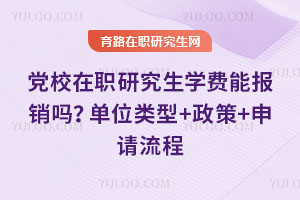
黨校在職研究生學(xué)費(fèi)能報(bào)銷嗎?學(xué)費(fèi)報(bào)銷與否由單位政策決定,無全國統(tǒng)一標(biāo)準(zhǔn):黨政機(jī)關(guān)多按50%-100%報(bào)銷(需與工作相關(guān)),國企多定額補(bǔ)貼+比例報(bào)銷(30%-80...
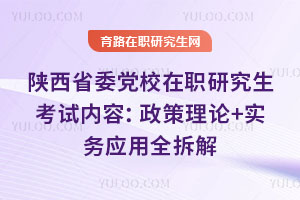
陜西省委黨校在職研究生考試為自主命題、自主招生,陜西省委黨校在職研究生考試內(nèi)容分兩類:公共科目(政治理論,必考)+專業(yè)科目(專業(yè)基礎(chǔ)+實(shí)務(wù)應(yīng)用,按所選專業(yè)設(shè)定)...
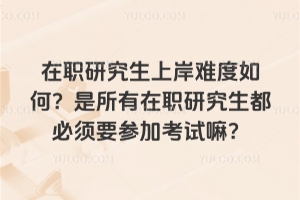
在職研究生上岸難度因報(bào)考方式不同而有差異。非全日制研究生需參加全國統(tǒng)考,通過率約30%;同等學(xué)力申碩先入學(xué)后考試,通過率達(dá)60%-70%。藥學(xué)在職研究生備考方法...
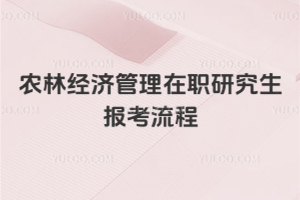
農(nóng)林經(jīng)濟(jì)管理在職研究生介紹農(nóng)林經(jīng)濟(jì)管理在職研究生是培養(yǎng)具有農(nóng)林經(jīng)濟(jì)管理專業(yè)知識(shí)和實(shí)踐能力的高級(jí)人才。專業(yè)特色農(nóng)林經(jīng)濟(jì)管理
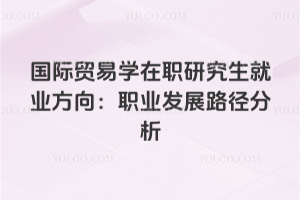
國際貿(mào)易學(xué)在職研究生就業(yè)方向主要包括外貿(mào)公司、跨境電商企業(yè)、政府部門、銀行金融機(jī)構(gòu)、跨國公司、國際物流公司、國際會(huì)展公司、咨詢公司、高等院校和科研院所等。這些領(lǐng)...
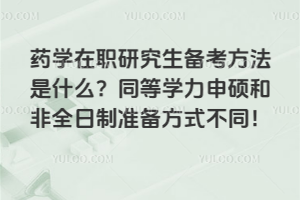
藥學(xué)在職研究生備考方法因報(bào)考類型不同而有所差異。同等學(xué)力申碩免試入學(xué),備考重點(diǎn)在課程學(xué)習(xí)和申碩考試;非全日制需要參加全國統(tǒng)考,備考重點(diǎn)在初試和復(fù)試。考生應(yīng)根據(jù)自...
在職研究生
入學(xué)考試
在職研究生
有用嗎
在職研究生
如何報(bào)考
在職研究生
報(bào)考流程
在職研究生
報(bào)名條件
在職研究生
學(xué)費(fèi)一覽表
在職研究生
考哪些科目
在職研究生
怎么報(bào)名
在職研究生
一年考幾次
評(píng)論0
“無需登錄,可直接評(píng)論...”